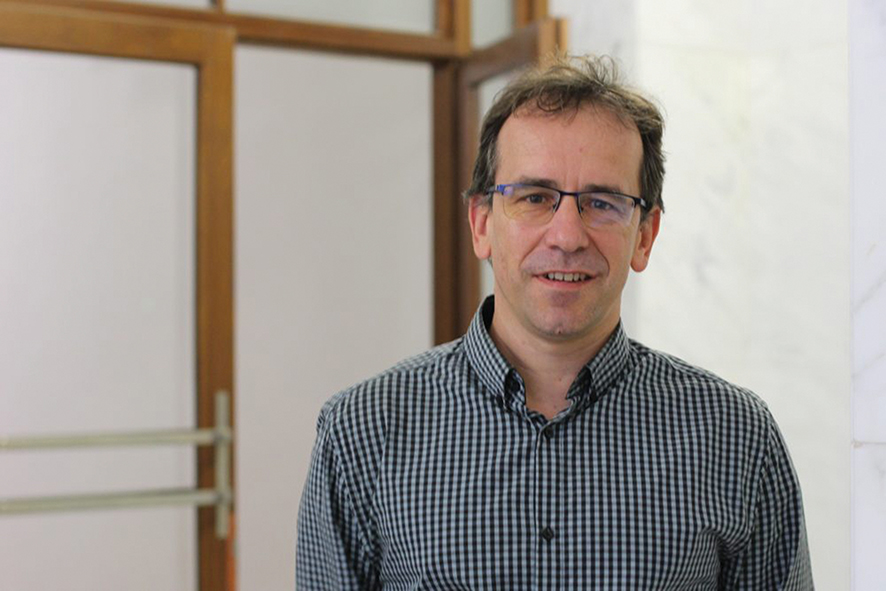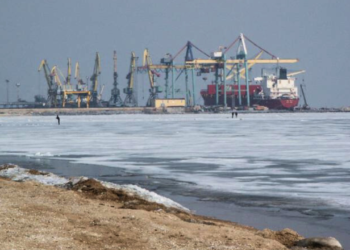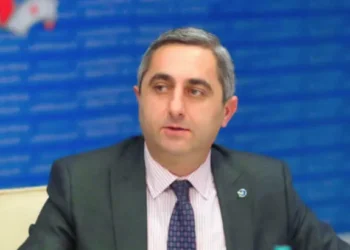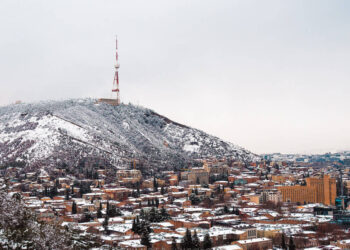The Velvet Revolution, which culminated in the peaceful overthrow of Czechoslovakia’s communist regime in November 1989, remains one of modern Europe’s defining moments. Thirty-five years later, its resonance has not faded, but neither have its warnings. For David Stulík, now Czechia’s Special Representative for the Eastern Partnership following on from 12 years in the EU’s diplomatic service, the revolution’s legacy is as vivid as ever: “If you want freedom, democracy, and human rights, you have to fight for them. These values cannot be taken for granted,” he tells Radio Free Europe/RL’s Georgian Service.
Stulík’s words serve as both a reminder and a warning. The revolution of 1989 may have been one of the defining events, heralding the end of the Cold War and ushering in a euphoric decade of democratic triumph, but history, he notes, has proven less linear than the optimists of the 1990s imagined. What felt like a definitive victory for liberal democracy at the time now reveals itself as merely a chapter in an ongoing struggle between freedom and authoritarianism.
The Velvet Revolution’s bloodless success was extraordinary, but as Stulík points out, its circumstances were uniquely favorable. “We were lucky,” he notes. “The Soviet Union was collapsing, its economy in ruins. Over 300,000 Soviet troops left Central Europe without a single shot being fired.”

The revolution was not just a Czech or Slovak story; it resonated far beyond. Its echoes inspired later movements, such as Georgia’s Rose Revolution and Ukraine’s Orange Revolution. Yet, Stulík observes, while these nations yearned for the same freedoms Central Europe achieved, their geographic and political proximity to Russia has complicated their paths. “For Moldova and Georgia, the fight remains hybrid,” he notes. “Russia may no longer deploy tanks, but its arsenal now includes propaganda, cyber warfare, and economic coercion.”
For Stulík, one of the Velvet Revolution’s most enduring lessons is the danger of complacency. “The first decade of the 1990s was euphoric,” he says. “We thought the battle was won forever.” But soon enough, Russia’s resurgence, fueled by the West’s continued purchase of its oil and gas, started reverting the wheel at a frightening pace.
Nowhere is this clearer than in Ukraine, where war has laid bare the costs of freedom. “They fight with weapons in hand for what we in Central Europe have taken for granted,” says Stulík. “Democracy, freedom, the right to self-determination, all at the cost of thousands of lives.”
In Georgia, where today the road to democracy and EU integration seems more arduous than ever, Stulík insists it is still navigable. “The Velvet Revolution shows us that change is possible, even under the most oppressive conditions,” he says. “But such changes are brought about by people, not governments. The ultimate responsibility lies with citizens.”
Stulík is candid about the role of leadership, or its absence. “In 1989, we had Václav Havel, Lech Wałesa, and Madeleine Albright; leaders who thought strategically and beyond electoral cycles,” he says. Today, he observes a dearth of such visionaries. Populists, offering simplistic solutions, dominate the political landscape, making it harder for genuine reformers to gain traction.
Thirty-five years after Prague’s streets lit up with candles, the lessons of the Velvet Revolution remain as relevant as ever. Democracy is not a destination; it is a journey. Sovereignty is not granted; it is earned. And freedom is never free.
By Vazha Tavberidze














